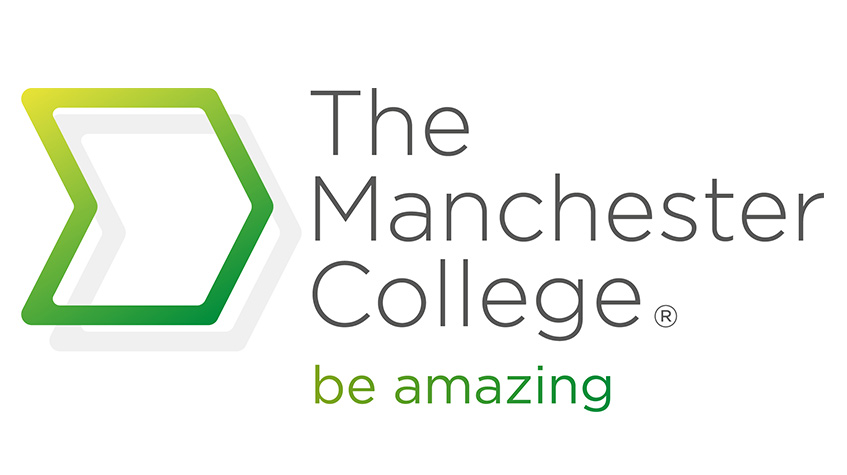
Essential Young People Employability Skills for 2025 and Beyond
When you join The Manchester College, you are asked to sign up to The Deal; a commitment to professional standards and behaviour to help you thrive during your studies.
The Deal incorporates 7 behaviours which are also essential for improving your employability skills. Adopting and living the values described can prepare you for interviews, work experience, paid work and generally stand you in good stead for life after study.
In 2025, nearly one million young people in the UK aged 16 to 24 are not in education, employment, or training (NEET), marking the highest level in over a decade. This trend underscores the critical need for young individuals to cultivate the skills and behaviours that employers are actively seeking.
All 7 behaviours – professional, respectful, ambitious, committed, responsible, collaborative and proactiveness – are also some of the essential skills required to function within a team and be an excellent team player; something that employers tell us is a top quality they look for when recruiting new staff.
This blog explores and highlights other key qualities you’ll need to build a future-proof career in 2025 and beyond.
Employability skills young people need in 2025
Professional
Professionalism begins at college, where we expect you to show up on time, wear ID and generally be ready to start the day. The same is true of any activity involving a team; prepare as much as you can for tasks and projects and find out in advance what will be expected of you. This preparedness is all part of cultivating a professional image and attitude and will stand you in good stead in class, as well as on a work experience placement.
Respectful
Be that person in the team who remembers to say, “thank you” and is inclusive and kind to others. This respectful behaviour is an essential part of good communication skills, as it’s about appreciating others’ opinions and listening without working on your own response, but with an open attitude to what others are saying.
Ambitious
In the context of teams, this is being ambitious for the team; aiming for excellence, identifying joint goals and pulling together to achieve them. Not settling for average. This is a culture which we live at college too – we want our students to achieve industry excellence and have the best possible futures.
Committed
A team of committed individuals will always get things done and finished on time. This is about having energy and enthusiasm for the task or project and bouncing ideas off the other members of the team so that the work gets done properly.
Responsible
It’s good to be a team player but also look for opportunities to lead a team or an activity. This will show employers you have the potential to take responsibility for a task and are someone interested in developing themselves further. Show a can-do attitude i.e. look for ways to make things happen and set about implementing them. Employers want positive people who get things done and are role models for others.
Proactive
Always plan in advance for appointments and tasks. This will help you stay organised and avoid knee-jerk reactions when unexpected things happen. Make sure you have a clear outline of the task at hand and that everyone in the team knows what’s expected of them.
Collaborative
Practice being collaborative in your learning environment by sharing ideas and working in a team whenever you can. Take the same approach to problem-solving and ask others what they think so that you can work towards a solution together.
It can take longer to accomplish a task if you work purely on your own. Employers look for team players - people who are ready to contribute and share – as teams built on collaboration are more effective.
Read more: Top 7 Growing Industries and How Our Courses Prepare You for Them
The 10 must-have employability skills for 2025
1. Adaptability
Change is constant. Whether it’s learning new technology or adjusting to new ways of working, being flexible makes you an asset in any workplace.
2. Digital fluency
Comfortably using digital tools, project management platforms, AI systems and communication apps is now basic survival in most careers.
3. Critical thinking and problem-solving
Employers want people who can analyse a situation, think through options and make smart decisions without needing constant direction.
4. Communication across multiple platforms
Whether it’s video calls, emails, or project management chats, you need to get your ideas across clearly, professionally and appropriately for different audiences.
5. Hybrid teamwork
Working across remote and in-person teams is the norm. Employers want team players who collaborate easily across time zones, locations and cultures.
6. Self-management and initiative
No one will micromanage you in most 2025 workplaces. Being able to prioritise your workload, stay motivated and deliver results independently is a huge advantage.
7. Cultural awareness and inclusion
The UK workforce is more diverse than ever. Being respectful, inclusive and able to work across cultural differences makes teams stronger and employers know it.
8. Emotional intelligence
Understanding your emotions and reading others’ emotions helps you manage relationships, resolve conflicts and lead teams more effectively.
9. Resilience and stress management
In a fast-paced, often uncertain work environment, the ability to stay calm, bounce back from setbacks and keep going is critical.
10. Ethical and sustainable thinking
More businesses expect employees to think about social responsibility, sustainability and ethical decision-making. Employers are looking for people who care about more than just profit.
How you can improve your employability and build skills with work experience
Work experience is one of the most effective ways to boost your employability. It gives you the chance to apply what you’ve learned in real-world settings, develop new skills,and gain insights into how industries operate day-to-day.
Whether it's a short or extended placement, a part-time job, or volunteering, work experience helps you build essential skills like communication, teamwork, problem-solving, and adaptability, which are all highly valued by employers in 2025.
It also shows future employers that you’re proactive, motivated and serious about your career development. Even small experiences can make a big difference when you're applying for jobs, apprenticeships, or university courses.
At The Manchester College, our students regularly get the opportunity to work on exciting placements and projects. Recently, our Visual Arts students set up a pop-up shop working with the Manchester Craft and Design Centre.
How The Manchester College helps you develop essential employability skills
We are committed to making sure every student is ready for the modern world of work. Our expert tutors don't just teach, they help you develop key employability skills like teamwork, communication and problem-solving, directly linked to the demands of today’s industries.
We regularly update and tailor our courses to match current employer expectations, making sure what you learn is relevant and valuable. Beyond the classroom, we support you in finding high-quality work experience placements that build your real-world skills.
Our dedicated careers advisors are also on hand to help you map out your future, identify the skills your dream career requires, and show you how to develop them, giving you the best possible chance of success after college.
Ready to start building your employability skills? Explore our courses and enrol now to take the next step towards your career goals.
